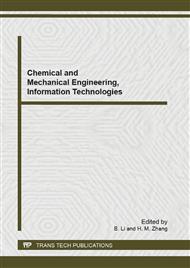p.1936
p.1941
p.1945
p.1949
p.1952
p.1957
p.1961
p.1965
p.1970
Research on Uplink Semi-Persistent Scheduling in LTE System
Abstract:
In LTE(Long Term Evolution) system, scheduling plays an important role in the process of allocating resource. LTE system puts forward semi-persistent scheduling (SPS) for new applications such as VoIP(Voice on Internet Protocol) and online games. Considering the problem of resource collision in SPS HARQ(Hybrid Automatic Repeat reQuest) process, we explore the relationship between uplink semi-persistent scheduling period and the number of semi-persistent transmissions, and propose two novel solutions. One is choosing specific uplink semi-persistent period for different uplink/downlink (UL/DL) configurations and the number of transmissions. The other is delaying collision processes for the configuration of small uplink period. The analysis proves that the two solutions can reduce the collision probability and improve the stability of LTE system.
Info:
Periodical:
Pages:
1952-1956
Citation:
Online since:
September 2013
Authors:
Price:
Сopyright:
© 2013 Trans Tech Publications Ltd. All Rights Reserved
Share:
Citation:


